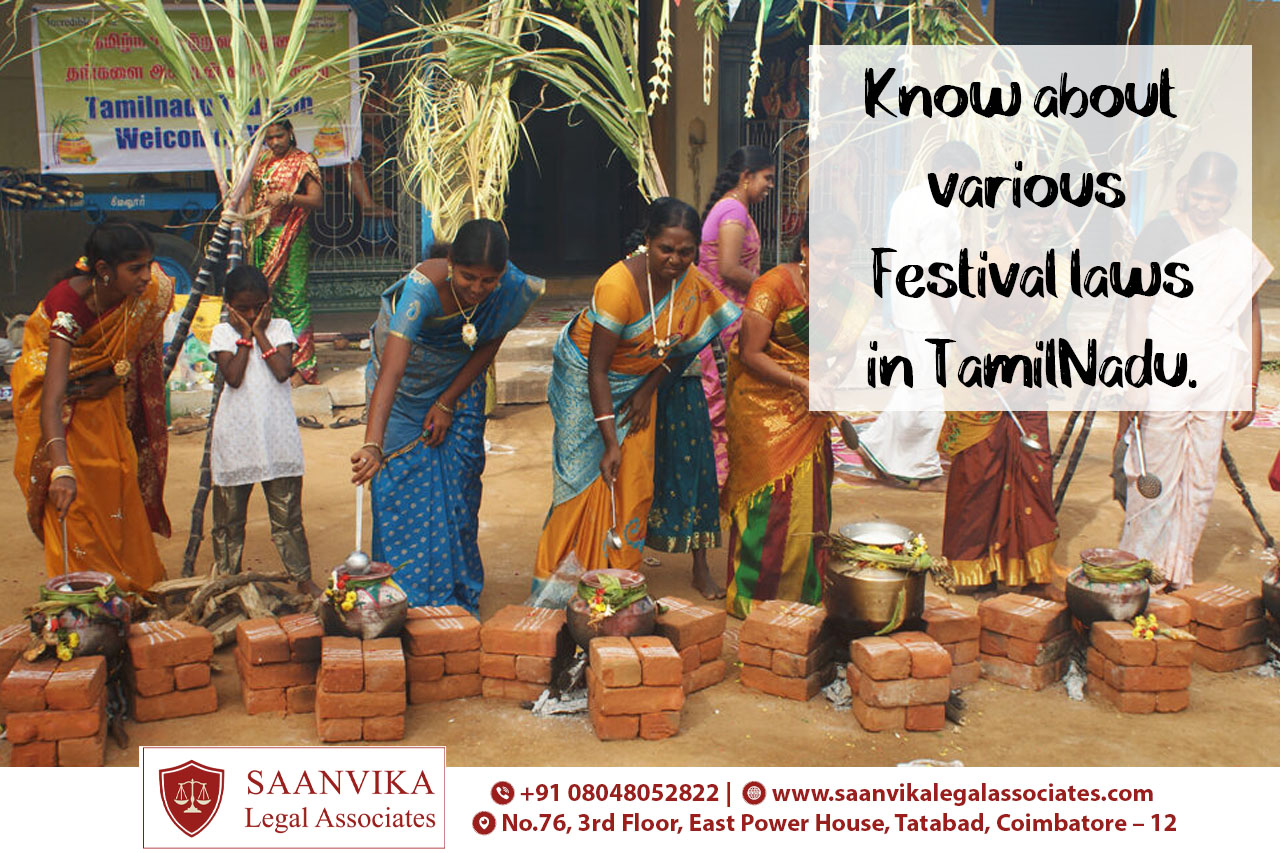
Best law firm in Coimbatore/ Best advocates in ...

Best law firm in Coimbatore/ Best advocates in Coimbatore/Best law service in Coimbatore/ Best legal consultation in Coimbatore/ Best legal services in Coimbatore/ Best lawyers in Coimbatore/ Online legal consultation. While there aren't specific "festival laws" per se, various regulations and acts impact how festivals are celebrated in Tamil Nadu. Here's a brief overview: The Tamil Nadu Industrial Establishments (National and Festival Holidays) Act, 1958: Specifies five mandatory festival holidays for employees in industrial establishments, chosen in consultation with employer and employees. Allows flexibility for choosing specific festivals based on regional and religious demographics. Ensures workers get paid rest days during major festivals. Tamil Nadu Panchayats (Classification of Fairs and Festivals) Rules, 1999: Classifies fairs and festivals based on size and economic impact, guiding resource allocation and safety measures. Village Panchayats play a key role in organizing and managing smaller festivals, ensuring community involvement. Larger festivals often involve district and state government collaboration for crowd control, sanitation, and infrastructure. Noise Pollution (Regulation and Control) Rules, 2000: Sets permissible decibel levels for sound during day and night, aiming to minimize noise pollution during festivals. Applies to sound systems, musical instruments, and other sources, with exceptions for emergencies and traditional practices. Helps maintain a balance between festive celebrations and noise-related disturbances. Wildlife Protection Act, 1972: Restricts activities that harm wildlife or their habitats, impacting some traditional practices associated with festivals. For example, animal sacrifices are prohibited, and guidelines exist for using eco-friendly materials in rituals. Promotes animal welfare and environmental protection alongside cultural celebrations. Local Administration Laws: Municipal corporations and panchayats enact bylaws addressing specific issues like waste management, traffic regulations, and temporary stall permissions during festivals. These bylaws ensure smooth functioning of public spaces and minimize disruption to daily life. Temple administration boards or specific festival committees often have internal regulations governing rituals and ceremonies. Mutual respect and understanding between communities are crucial for harmonious celebration of diverse festivals in Tamil Nadu. Are you still waiting to start your online learning? Sahaswi Group of Institutions in Coimbatore is the best choice for your higher education. Here you can get amazing distance education programs from well-reputed universities in and around India. Moreover, you can get full coordination from the start to the end of your course. So don’t wait to enroll in a distance education course in the Sahaswi Group of Institutions and gain the benefits of quality education.
Keywords
Subscribe for latest offers & updates
We hate spam too.


